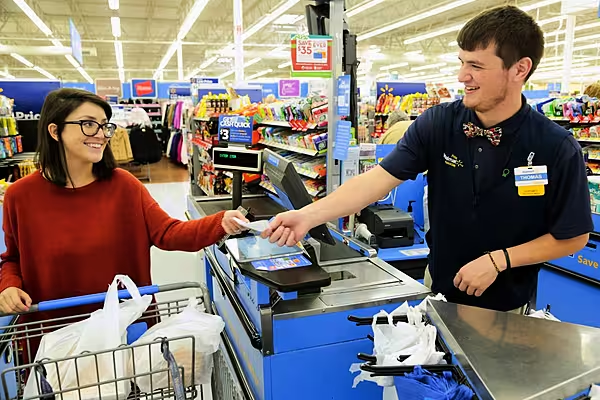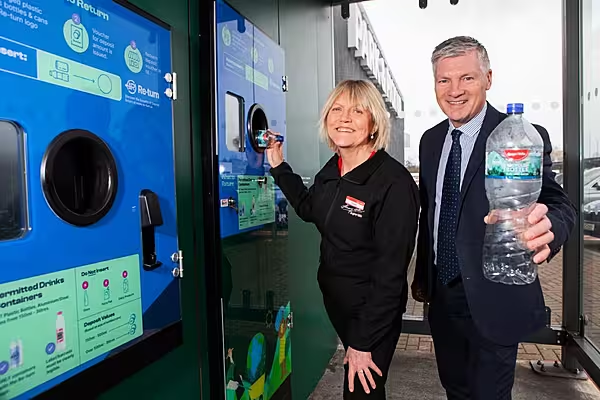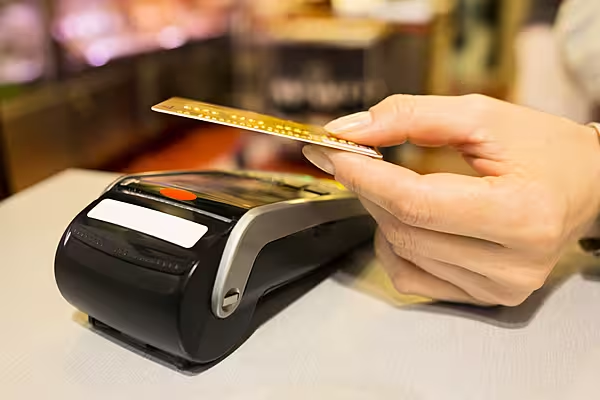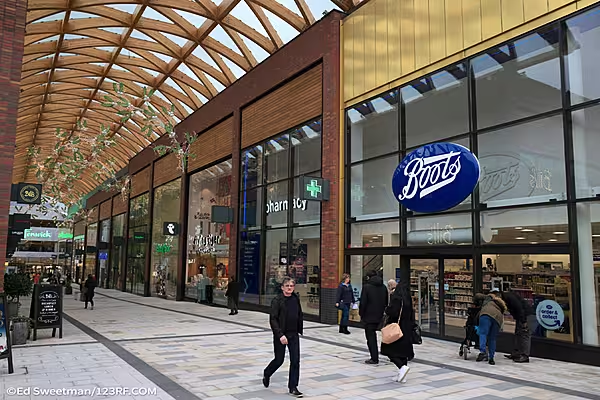If Sainsbury's is to succeed in its $10 billion bid for Walmart's Asda and become Britain's largest supermarket it will have to persuade regulators that changes in the way people shop mean previous anti-trust rulings no longer apply.
Britain's Competition and Markets Authority (CMA) has said it is likely to review the biggest deal in the sector for 15 years.
Competition lawyers say Sainsbury's and Asda face an uphill battle to get the bid passed without having to sell off so many stores that it removes the rationale for the deal. Whether there are enough buyers for those large stores in an industry moving online and to smaller convenience shops is another moot point.
The move by Sainsbury's, Britain's second-largest supermarket, for the next largest Asda, is designed to help it counter German discounters and online giants such as Amazon in the rapidly changing 185 billion pound ($252 billion) sector.
Following are the arguments for and against a takeover which could bring together more than 2,800 stores, 330,000 staff and over 51 billion pounds in annual revenue.
Where Are We Now?
Major supermarket takeovers have been on ice in Britain since a pivotal 2003 ruling.
Weighing up a four-way battle for then number four player Safeway, the regulator ruled that the three largest groups -- Tesco, Asda and Sainsbury -- should not become any bigger, only allowing the sixth-biggest, Morrisons, to buy it.
Today, the sector is dominated by Tesco which has grown organically to hold 27.6 percent of the market, with Sainsbury on 15.9 percent, Asda on 15.5 and Morrisons on 10.5.
Others such as the Co-Op, Waitrose and Iceland hold single figure shares while German discounters Aldi and Lidl have grown rapidly since that last deal to hold 7.3 and 5.4 percent of the market respectively as shoppers opt for their simple low prices.
Their growth has forced all of the big supermarkets to cut prices and costs. Online sales have also grown rapidly, with industry group IGD saying 42 percent of shoppers go online for at least some of their groceries, forcing supermarkets to restructure and drawing the attention of Amazon.
Online now makes up around 6 percent of the market, with the main supermarket groups among the big players in that niche too.
Price Cuts Promised
Mike Coupe, Sainsbury's CEO and the deal's mastermind, said a combination will enable it to strengthen its buying power, cut costs and lower prices by about 10 percent on many products.
"The first thing to remember about the CMA is it is there purely to act on behalf of customers and we believe we have a very compelling story to tell on customer benefits," he said.
He says the market has been transformed since 2003, with shoppers now buying food from major supermarkets, discounters, local convenience stores and online retailers.
He even said online takeaway groups such as Uber Eats and pharmaceutical giant Boots should be included when examining the strength of competition.
Booker Example
Were the regulator to accept that the market is far broader than just the big four supermarkets, it would soften the impact any merger would have. Coupe pointed to two recent deals as a sign that the regulator is coming around to that thinking.
Tesco's recent purchase of the wholesale group Booker, giving it access to the catering industry as well as independent grocery retailers, was cleared unconditionally when the regulator accepted that the presence of Aldi and Lidl deterred the merging parties from hiking prices.
Competition from online betting was also included in the review of the merger of high street bookmakers Ladbrokes and Gala Coral.
"If you analyse the decisions between Safeway and Tesco-Booker, the only way you can explain it is the CMA, as they are now, has decided the market is different because of new market entrants and the online market," Mike Pullen, a regulatory consultant at law firm Carter-Ruck said.
Online shopping has grown rapidly, with Britain boasting one of the largest online grocery markets in the world. The merging parties will argue that development reduces the importance of how many physical stores are available in any one area.
Rival Voices
The shock deal has already prompted rivals, suppliers, unions and politicians to voice concern that the creation of a new market leader could squeeze small suppliers and reduce competition, ultimately leading to higher prices.
According to market research from Kantar, a combined Sainsbury's and Asda would hold more than 31 percent of the market, creating a duopoly with Tesco on around 28 percent.
Stephen Smith, a competition lawyer at Bristows, said the regulator would look to establish whether there was a group of consumers for whom discounters and convenience stores were still not relevant, meaning they depend on the big four.
The regulator will examine the deal for impact at the national and local level, looking for overlaps between the two brands. Bernstein analyst Bruno Monteyne said the regulator could demand that around 15 percent of stores are sold.
If the regulator includes the impact of discounters however then that could fall to 8 percent. "At 13 percent store disposals, the deal would stop being accretive," he said.
Rivals are also likely to argue that Aldi and Lidl are narrower in their focus and do not compete directly with the big superstores. They could also question whether it would be fair for the combined group to buy products as one entity and sell them at different prices through the two brands.
Smith also said that while online sales have grown strongly he doubted it was enough to make local competition irrelevant.
Kill or Cure?
Barrister Suzanne Rab from Serle Court said the CMA was alert to the new dynamics but added: "It remains to be seen whether it will be persuaded that the recent entry by Amazon is sufficiently established to exercise a meaningful constraint."
Amazon bought upscale grocer Whole Foods Market in 2017 and is testing its same-day delivery AmazonFresh in Britain, but its overall share of the market remains tiny.
Regulators will also look at the impact on suppliers. The groceries regulator said a merger could force Asda to bring its standards into line with the better-regarded Sainsbury's.
Finally, the CMA will be reluctant to agree a deal in exchange for so many store disposals that it ultimately destroys the new group. Carter-Ruck's Pullen also questioned whether the two groups would be able to find buyers for so many vast stores.
"Is someone lined up to take on the ones they have to divest? I don't know that," he said.
News by Reuters, edited by Donna Ahern. Click subscribe to sign up for the Checkout print edition.





